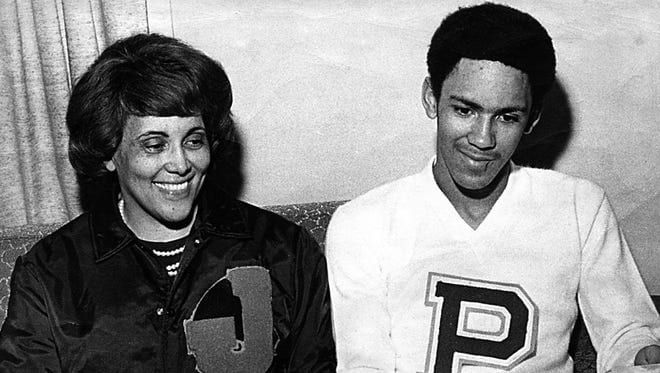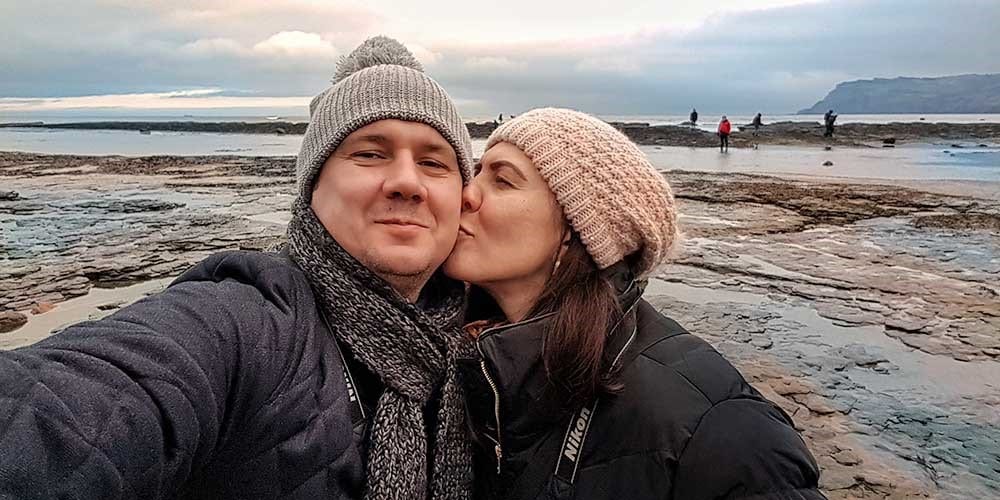Life is filled with decisions to make and we need to be deliberate in making the right ones. Leroy Rocquemore was an African American administrator at our predominately white junior high school. Although he took a personal interest in all the kids, he seemed to pay special attention to the African American boys. He wanted to ensure that we grew as people, not just as athletes. In short, he cared. For two years at Frost Junior High School, I got to know him as more than an administrator. He was a friend, and when I moved up to Parkside High, he continued to keep tabs on my friends and me. Ultimately, he helped guide me in making good choices.
One of my closest buddies was Bobby Burton, a receiver. We had been starters on the varsity team since our sophomore year and were the leading offensive players on the team. We had just finished the football season of our junior year at Parkside, and it had been a pretty good year, all in all. Coach Driscoll’s policy was for the team to vote for the following year’s captains at the end of the season. The winners would be announced at the fall sports banquet in November. That year, I was elected as a team captain. Bobby wasn’t. I just couldn’t understand this. It seemed obvious to me that both of us should have been captains. I could only think of one explanation.
For some reason, the school didn’t want two black captains. It seems impossible now, but at that time it didn’t. Parkside’s football team had never had two black captains, and no one could convince me that those votes had been counted correctly. I was hurt and felt certain that a race-based injustice had been done. Reacting to the hurt I felt for Bobby—as well as for myself and for all the black players—I quit the team. I told Coach Driscoll I was just going to play basketball my senior year. Basketball was my favorite sport anyway.
Of course, I was a fairly good player, a popular student, a newly elected captain, and the quarterback, so the other African American players decided they were going to quit the football team, too. I hadn’t really thought about that possibility when I decided I wasn’t going to play, but it didn’t bother me at the time. I figured everybody had to make his own decisions.
Making Things Better
My dad, of course, said I had to do what I thought was best. But, as he always did, he wanted to know what I was going to do to improve the situation. He wanted to know what I could do to make things better, rather than just reacting. But I was 17, and I didn’t care if the situation got better. My feelings were hurt. Bobby’s feelings were hurt. And I was so focused on playing basketball in college that I didn’t think I would miss football in the least.
The player walkout began after the postseason banquet in November and continued through the rest of the school year. At the end of the summer, when the team was preparing to go back to practice, Mr. Rocquemore invited me to his house. He had already talked to me a couple of times about my decision to quit football, but I think he wanted to give me one more chance to reconsider.
“Tony, you enjoy playing football, and these other guys enjoy playing football. You should have your senior year to play, and so should they. At the end of the day, what are you really upset about, anyway? Even if the issues are that important, should they spoil the fun all of you should be having playing football as seniors? Thirty years from now, you don’t want to look back and say that you missed out on something you really loved doing.” Then he asked the question he really wanted me to answer. “Why would you let ANYTHING stop you from doing what you have the ability to do?”
Although by then I was convinced he was right, I always had quite a temper, and my pride just wouldn’t allow me to back down. Practically speaking, I could understand Mr. Rocquemore’s point, but from a moral standpoint, I was still pretty sure I was in the right. Plus, at 17 (and even at 60), pride and hurt feelings can be pretty overwhelming. Mr. Rocquemore knew I would have trouble asking Coach Driscoll if I could return, so he said he would talk with him and do his best to smooth everything over. “I’ll tell him you want to play and make everything all right. Don’t worry about it.” After he spoke with Coach Driscoll, Mr. Rocquemore arranged for the three of us to meet. Coach was a very principled guy, and he set the tone for the meeting.
“Tony, you can come back, but you’ve missed winter conditioning, and you’ve missed our summer workouts. So you guys”—he knew if I came back, the others would also come back—“are going to have to do some extra stuff to earn your way back.” He mentioned extra running, washing the dishes at camp, and so forth, as his requirements “if I’m going to let you back.”
When he had finished, I think the only thing I heard was, “if I’m going to let you back.” I was getting mad, thinking, if he’s going to let me back? I started to get visibly upset, and Mr. Rocquemore gave me a look that kept me quiet. But all the while, even Mr. Rocquemore was thinking, Now why did Coach have to go there?
Gentle Guidance
After the meeting, Mr. Rocquemore took me aside and said, “Coach is the coach, and you’re the player, and there are times in life when you’re going to have to do certain things. That’s just how it goes. That’s a lesson you’re going to have to learn to get through life.”
In the end, we all went back and worked our way back onto the team. It was a great year—we only lost one game, the de facto state championship (they didn’t have playoffs in those days). Even more important, today I have a great relationship with Coach Driscoll. In fact, he came to Super Bowl XLI to see me, and we shared an emotional hug at our Saturday practice before the game.
I see now what I couldn’t as a strong-willed teenager, thanks to the firm hand of Coach Driscoll and the gentle guidance of Mr. Rocquemore. If Mr. Rocquemore hadn’t taken that interest in me—not merely as an athlete and a student but as a friend—everything would have been different.
When my friends and I left him and went to high school, he didn’t stop caring about us. If he had, I wouldn’t have played football my senior year, and many doors never would have opened for me later in life. He took a step he didn’t have to take, and I listened to him based largely on the relationship he had worked to develop with me. I used this principle all the time in coaching.
That experience also taught me about the downside of making quick decisions. To this day, I’m very deliberate—probably too deliberate at times—when I can afford to take the time to sort through a decision-making process.
Sound off: What is a decision you made too quickly that had difficult consequences?












Huddle up with your kids and ask, “Why do you think it’s important to think through our decisions?”